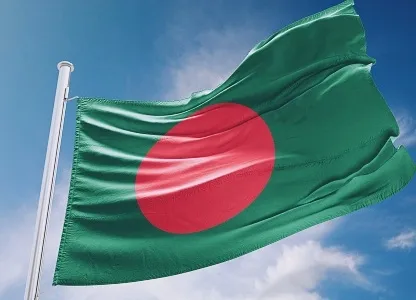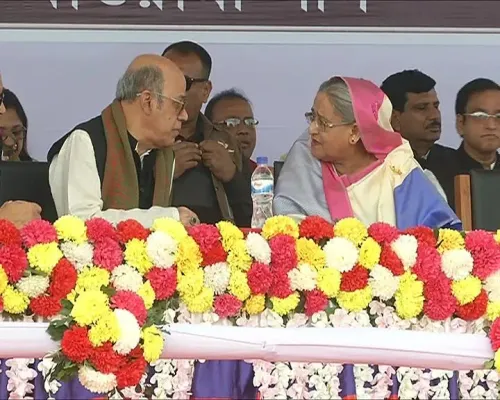Are Those Who Lost in the 1971 B'desh War Now Disrupting Elections?

Synopsis
Key Takeaways
- BNP accuses defeated factions of disrupting elections
- Proportional Representation system under scrutiny
- Calls for preserving voting rights
- Jamaat-e-Islami's controversial history highlighted
- Future of democracy in Bangladesh at stake
Dhaka, Sep 24 (NationPress) The Bangladesh Nationalist Party (BNP) claims that factions defeated in the 1971 Liberation War are working to undermine the forthcoming national elections through street protests advocating for a Proportional Representation (PR) system, according to local media. During a discussion themed 'Democracy and the Constitution of Bangladesh in the Current Context' in Dhaka, BNP Standing Committee member Selima Rahman accused radical Islamist factions, including Jamaat-e-Islami, of inciting unrest under the guise of promoting the PR system.
She stated, "We are witnessing schemes to halt or postpone the elections, despite the election roadmap being announced. The conspirators are remnants of the 1971 defeat, and their talk of PR is foreign to the common citizen," as reported by The Dhaka Tribune.
Selima explained that a PR system would eliminate individual candidates, allowing voters to cast ballots solely for parties.
Reaffirming the BNP's staunch opposition, she cautioned that the PR system would diminish citizens' voting rights.
Criticizing Jamaat, Selima asserted, "Jamaat—those who once perpetrated violence against our nation, who betrayed the country by supporting Pakistan, and who acted as Razakars and Al-Badr, have a history that they cannot shed, despite their current rhetoric."
The BNP leader also accused Jamaat of attempting to undermine the hard-earned democratic progress of Bangladesh, achieved after a prolonged struggle.
"Their goal is to obstruct the elections, delay them, or incite instability. However, the people of Bangladesh will not permit this. The BNP is a major political party, committed to ensuring that the elections proceed, votes are cast, and a responsible government is formed. That is our commitment," she emphasized.
Recently, BNP Secretary General Mirza Fakhrul Islam Alamgir criticized the coordinated protests by various radical Islamist parties, including Jamaat, contending that advocating for demands like the PR system is detrimental to democracy.
The factions that previously allied with Muhammad Yunus to topple the democratically elected Awami League government, led by Sheikh Hasina, are now in conflict over reform proposals.








